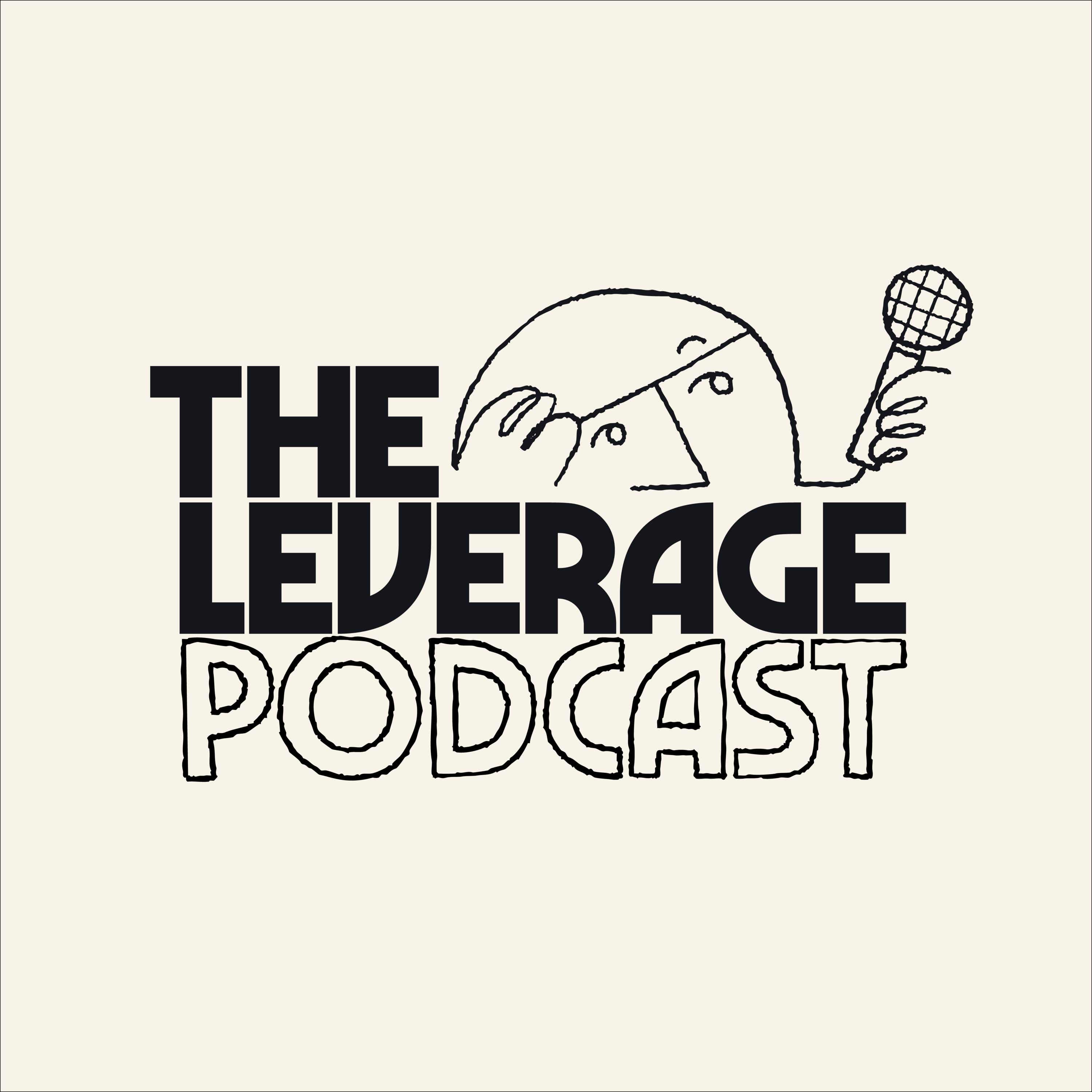

The Leverage Podcast
Evan Armstrong
The Leverage Podcast explores tech’s most urgent questions with the people answering them. www.gettheleverage.com
Episodes
Mentioned books

27 snips
Nov 26, 2025 • 39min
Are Ads the Answer to AI's Problems?
Quinn Slack, co-founder and CEO of Sourcegraph, dives into the intriguing world of coding tools with ads. He reveals the surprising success of their ad-supported coding agent, AMP Free, which generated millions in its launch month. Quinn discusses how carefully designed, non-intrusive ads can transform developer workflows without compromising trust. He explores the potential for an ad network catering to developers and explains how this model could stabilize AI infrastructure costs while appealing to enterprises. It’s a bold vision that challenges traditional monetization methods!

11 snips
Nov 12, 2025 • 48min
Can Crypto Fix AI Slop?
Adrian Ludwig, Chief Architect at Tools for Humanity, discusses the pressing issue of distinguishing humans from AI. He highlights the emerging concerns with AI manipulation and misinformation, emphasizing the innovative use of a device called the orb for verifying human identity. The conversation touches on privacy measures, how biometric data is handled, and the potential of World ID for applications like micro-credit. Adrian also addresses geographical adoption trends, particularly in Argentina, and the challenges of decentralized verification systems.

20 snips
Oct 30, 2025 • 48min
Why Is The Internet Bad Now?
Cory Doctorow, a writer and technology activist known for his insights on digital rights, dives into the deterioration of online platforms. He introduces the concept of 'enshittification,' illustrating the cycle where platforms lure users, then exploit them for profit. Doctorow highlights the fragility of these systems, cautioning against the rise of surveillance advertising and the loss of user agency. He advocates for interoperability and calls for regulation to empower consumers, providing a thorough critique of the current state of the internet.

10 snips
Oct 21, 2025 • 45min
The Future of SaaS Is Already Here—and It’s Called EliseAI.
Minna Song, co-founder and CEO of EliseAI, dives into the future of SaaS, discussing her company's revolutionary approach to property management through conversational AI. She recounts her hands-on experiences in real estate that shaped EliseAI's design philosophy. With a staggering $250 million funding round and a $2.2 billion valuation, Minna reveals how they effectively replace tedious manual tasks and integrate into existing systems. Expanding into healthcare, she highlights their innovative strategy of offering CRM for free—pioneering a new era where AI simplifies administrative work.

60 snips
Oct 3, 2025 • 58min
The AI Agent Era Is Here
Flo Crivello, the founder of Lindy, shares insights on building a no-code platform for AI agents that streamline workflows across various sectors. He discusses the importance of reducing internal coordination costs and how AI can enable smaller firms. The conversation reveals how recent advancements like GPT-4 have transformed agent reliability. Flo also highlights the challenges of user onboarding, the shift in workflows for AI adoption, and the pressing concerns of AI safety as he envisions a future of multi-agent systems.

10 snips
Sep 16, 2025 • 1h 8min
So, is AI Gonna Kill Us All?
Nate Soares, the President of the Machine Intelligence Research Institute, joins to discuss the existential threats posed by artificial superintelligence. He argues that AIs with undisclosed goals could jeopardize human values. Nate shares his insights on how current AI systems often lead to unintended consequences, using examples like ChatGPT. He also emphasizes the importance of international policy and cooperation to mitigate risks, while navigating the balance between technical details and accessibility in communicating these critical issues.

23 snips
Sep 10, 2025 • 1h 5min
The VC Who Disrupted His Own Career — Bryce Roberts
Bryce Roberts, founder of the venture capital firm Indie and a former seed investor for companies like Figma and CTRL Labs, shares his insightful journey. After a bold, yet disastrous venture, he speaks candidly about his 'ego death' and the lessons learned. The conversation dives into the evolution of seed investing and how AI is reshaping funding models, prioritizing innovation over traditional practices. Bryce emphasizes the shift from ego to ethos, advocating for a more sustainable and community-focused approach in the entrepreneurial landscape.

13 snips
Jul 12, 2025 • 56min
Founders Fund, Peter Thiel, and The Cultivation of Soft Power
Mario Gabriele, a writer and founder of The Generalist, dives into the enigmatic world of Peter Thiel and the Founders Fund. He explores how their anti-mimetic investment philosophy stands out in Silicon Valley's crowded landscape. Mario discusses Thiel's controversial 'macro calls' and the soft power the firm wields through strategic narratives. With a keen eye on the complexities around Thiel, he argues for embracing nuance and challenges the notion of moral absolutes in studying such figures. Get ready for a thought-provoking examination of innovation and influence!


